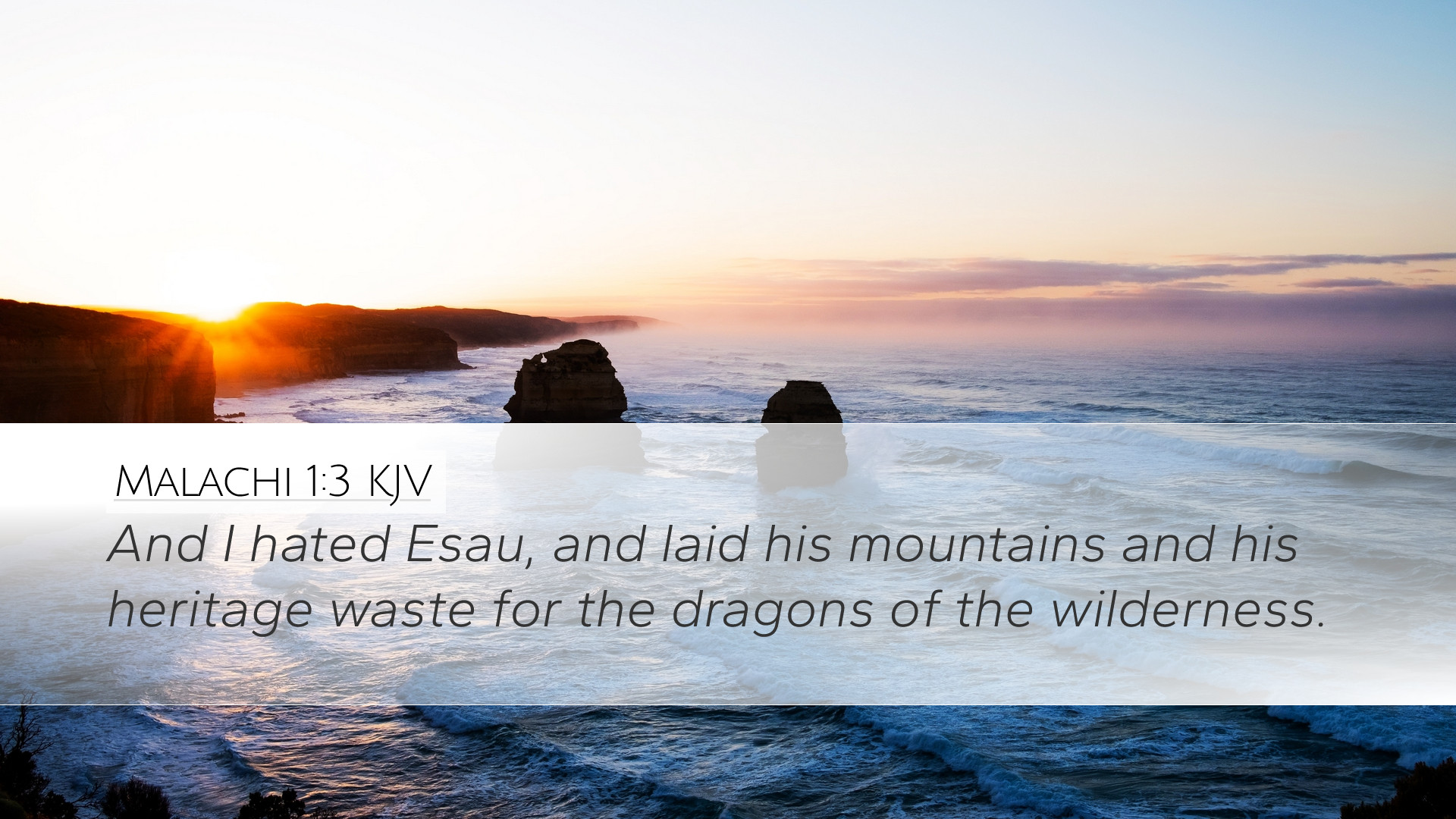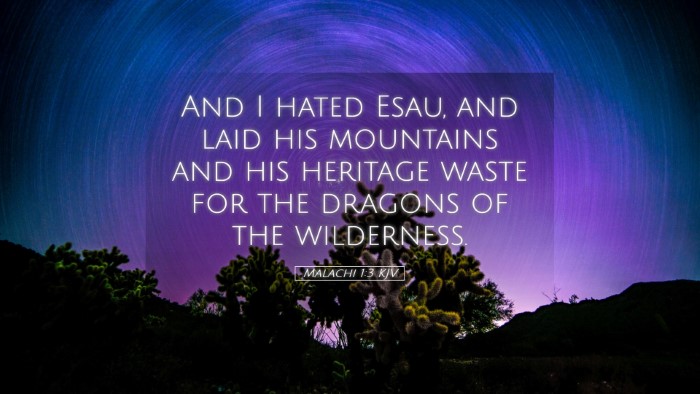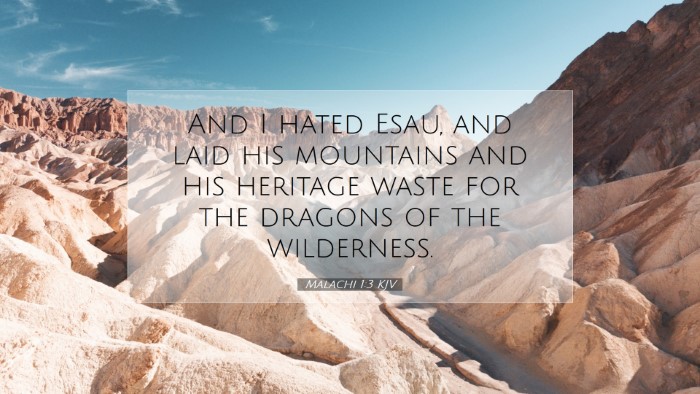Old Testament
Genesis Exodus Leviticus Numbers Deuteronomy Joshua Judges Ruth 1 Samuel 2 Samuel 1 Kings 2 Kings 1 Chronicles 2 Chronicles Ezra Nehemiah Esther Job Psalms Proverbs Ecclesiastes Song of Solomon Isaiah Jeremiah Lamentations Ezekiel Daniel Hosea Joel Amos Obadiah Jonah Micah Nahum Habakkuk Zephaniah Haggai Zechariah MalachiMalachi 1:3
Malachi 1:3 KJV
And I hated Esau, and laid his mountains and his heritage waste for the dragons of the wilderness.



Commentary on Malachi 1:3
Malachi 1:3 states, "But Esau I have hated, and laid waste his mountains and his heritage for the dragons of the wilderness." This verse has sparked great theological discussion concerning divine election, the sovereignty of God, and the nature of God's love and hatred.
Contextual Analysis
To fully appreciate Malachi 1:3, one must understand the historical context of the passage. The book of Malachi is a prophetic message addressing the people of Israel, particularly focusing on their unfaithfulness and spiritual apathy after returning from Babylonian exile. God uses the contrast between Jacob and Esau to emphasize His covenantal love for Israel. Malachi's message reveals God's ultimate plan for His chosen people, Israel, versus Edom, Esau's descendants.
The Theological Implications of God's Hatred
This verse raises complex theological questions regarding the concept of divine hatred. The term "hated" (שָׁנֵא, sané) must be understood within the context of covenant relationships. Matthew Henry elaborates on this by noting that God’s hatred towards Esau and Edom is not merely an emotional disposition but reflects His judgment and plan concerning nations.
The Desolation of Edom
The phrase "laid waste his mountains and his heritage" points to the historical desolation that befell Edom. Albert Barnes notes that Edom’s pride and hostility towards Israel led to divine retribution. The rugged terrain of Edom, once a symbol of strength, became a desolate landscape as a result of divine judgment, fulfilling God’s pronouncement against them.
Historical Fulfillment
Historically, Edom faced various conquests, leading to its eventual downfall. The destruction of Edom serves as a reminder that nations and peoples who oppose God’s chosen often face severe consequences. This idea prompts scholars to reflect on the enduring principle of divine justice.
Lessons for Today
The message in Malachi 1:3 still resonates with contemporary believers. It underscores the significance of maintaining a faithful relationship with God while recognizing the tension that exists between divine love and judgment. The passage invites reflection on the following aspects:
Conclusion
In conclusion, Malachi 1:3 presents deep theological insights into God’s character, particularly concerning His justice and mercy. By contrasting Jacob and Esau, the text provides a profound glimpse into the divine narrative that governs human history. As pastors, students, theologians, and Bible scholars engage with this passage, it reveals the enduring truths of God’s covenant, the reality of divine judgment, and the assurance of His love for His people.